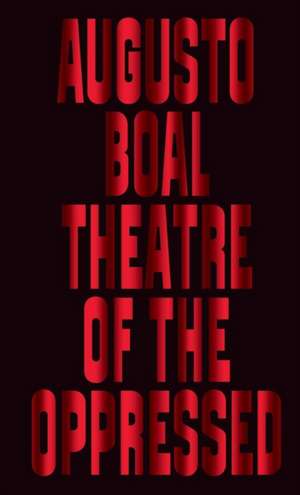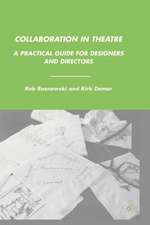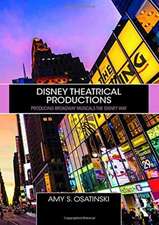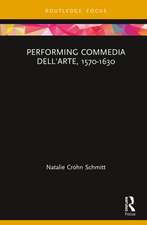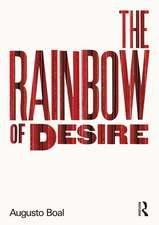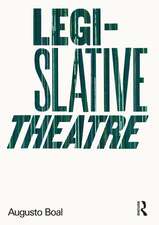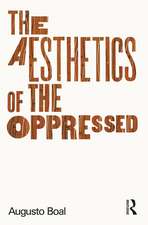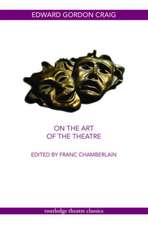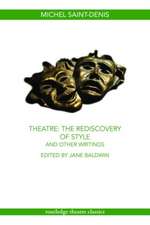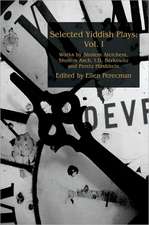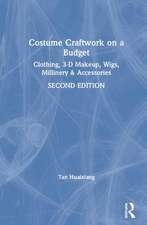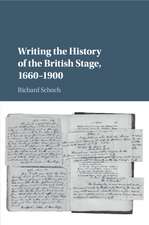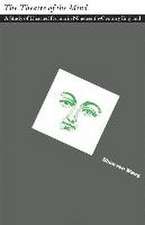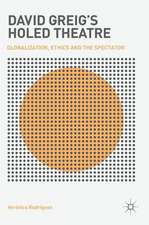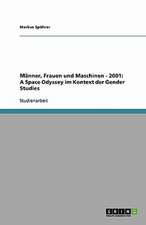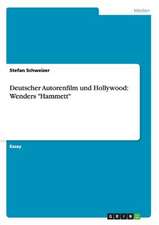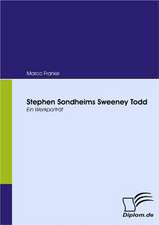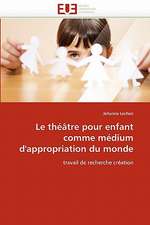Theatre of the Oppressed
Autor Augusto Boalen Limba Engleză Hardback – 19 mar 2019
| Toate formatele și edițiile | Preț | Express |
|---|---|---|
| Paperback (2) | 98.54 lei 3-5 săpt. | |
| Theatre Communications Group – 31 dec 1992 | 98.54 lei 3-5 săpt. | |
| PLUTO PRESS – 19 mar 2019 | 135.23 lei 3-5 săpt. | +24.04 lei 10-14 zile |
| Hardback (1) | 591.70 lei 3-5 săpt. | +19.36 lei 10-14 zile |
| PLUTO PRESS – 19 mar 2019 | 591.70 lei 3-5 săpt. | +19.36 lei 10-14 zile |
Preț: 591.70 lei
Preț vechi: 650.21 lei
-9% Nou
Puncte Express: 888
Preț estimativ în valută:
113.22€ • 118.53$ • 93.68£
113.22€ • 118.53$ • 93.68£
Carte disponibilă
Livrare economică 15-29 martie
Livrare express 04-08 martie pentru 29.35 lei
Preluare comenzi: 021 569.72.76
Specificații
ISBN-13: 9780745339306
ISBN-10: 0745339301
Pagini: 208
Dimensiuni: 135 x 215 x 15 mm
Greutate: 0.42 kg
Ediția:3. Auflage
Editura: PLUTO PRESS
ISBN-10: 0745339301
Pagini: 208
Dimensiuni: 135 x 215 x 15 mm
Greutate: 0.42 kg
Ediția:3. Auflage
Editura: PLUTO PRESS
Notă biografică
Augusto Boal (1931-2009) was a Brazilian theatre practitioner, drama theorist and political activist. He is the author of Theatre of the Oppressed (Pluto Press, 2019).
Cuprins
Preface to the 2008 edition
Preface to the 2000 edition ¿ The Unruly Protagonist
Preface to the 1974 edition
1. Aristotle¿s Coercive System of Tragedy
Introduction
Art Imitates Nature
What is the Meaning of `Imitation¿?
What, then, is the Purpose of Art and Science?
Major Arts and Minor Arts
What does Tragedy Imitate?
What is Happiness?
And What is Virtue?
Necessary Characteristics of Virtue
The Degrees of Virtue
What is Justice?
In What Sense can Theatre Function as an Instrument for Purifi cation and Intimidation?
The Ultimate Aim of Tragedy
A Short Glossary of Simple Words
How Aristotle¿s Coercive System of Tragedy Functions
Different Types of Confl ict: Hamartia and Social Ethos
Conclusion
2. Machiavelli and the Poetics of Virtù
The Feudal Abstraction
The Bourgeois Concretion
Machiavelli and Mandragola
Modern Reductions of Virtù
3. Hegel and Brecht: The Character as Subject or the Character as Object?
The `Epic¿ Concept
Types of Poetry in Hegel
Characteristics of Dramatic Poetry, Still According to Hegel
Freedom of the Character-Subject
A Word Poorly Chosen
Does Thought Determine Being (or Vice Versa)?
Can Man be Changed?
Confl ict of Wills or Contradiction of Needs?
Empathy or What? Emotion or Reason?
Catharsis and Repose, or Knowledge and Action?
How to Interpret the New Works?
The Rest Does Not Count: They Are Minor Formal Differences Between the Three Genres
Empathy or Osmosis
4. Poetics of the Oppressed
Experiments with the People¿s Theatre in Peru
Conclusion: `Spectator¿, a Bad Word!
5. Development of the Arena Theatre of São Paulo
Need for the `Joker¿
Goals of the `Joker¿
Structures of the `Joker¿
Appendices
Notes
Index
Preface to the 2000 edition ¿ The Unruly Protagonist
Preface to the 1974 edition
1. Aristotle¿s Coercive System of Tragedy
Introduction
Art Imitates Nature
What is the Meaning of `Imitation¿?
What, then, is the Purpose of Art and Science?
Major Arts and Minor Arts
What does Tragedy Imitate?
What is Happiness?
And What is Virtue?
Necessary Characteristics of Virtue
The Degrees of Virtue
What is Justice?
In What Sense can Theatre Function as an Instrument for Purifi cation and Intimidation?
The Ultimate Aim of Tragedy
A Short Glossary of Simple Words
How Aristotle¿s Coercive System of Tragedy Functions
Different Types of Confl ict: Hamartia and Social Ethos
Conclusion
2. Machiavelli and the Poetics of Virtù
The Feudal Abstraction
The Bourgeois Concretion
Machiavelli and Mandragola
Modern Reductions of Virtù
3. Hegel and Brecht: The Character as Subject or the Character as Object?
The `Epic¿ Concept
Types of Poetry in Hegel
Characteristics of Dramatic Poetry, Still According to Hegel
Freedom of the Character-Subject
A Word Poorly Chosen
Does Thought Determine Being (or Vice Versa)?
Can Man be Changed?
Confl ict of Wills or Contradiction of Needs?
Empathy or What? Emotion or Reason?
Catharsis and Repose, or Knowledge and Action?
How to Interpret the New Works?
The Rest Does Not Count: They Are Minor Formal Differences Between the Three Genres
Empathy or Osmosis
4. Poetics of the Oppressed
Experiments with the People¿s Theatre in Peru
Conclusion: `Spectator¿, a Bad Word!
5. Development of the Arena Theatre of São Paulo
Need for the `Joker¿
Goals of the `Joker¿
Structures of the `Joker¿
Appendices
Notes
Index
Descriere
Descriere de la o altă ediție sau format:
The book that started a revolution in modern theatre.
The book that started a revolution in modern theatre.
